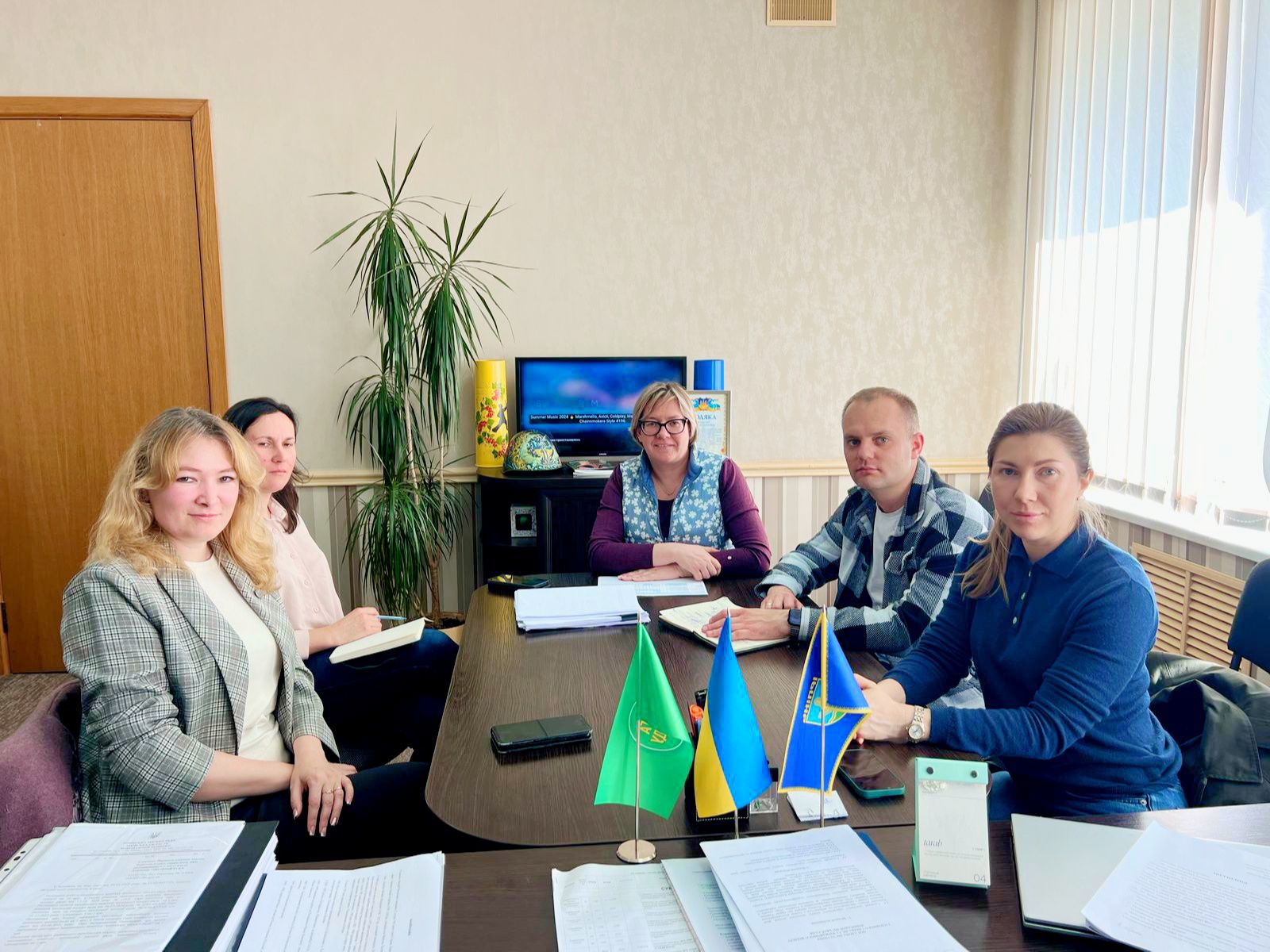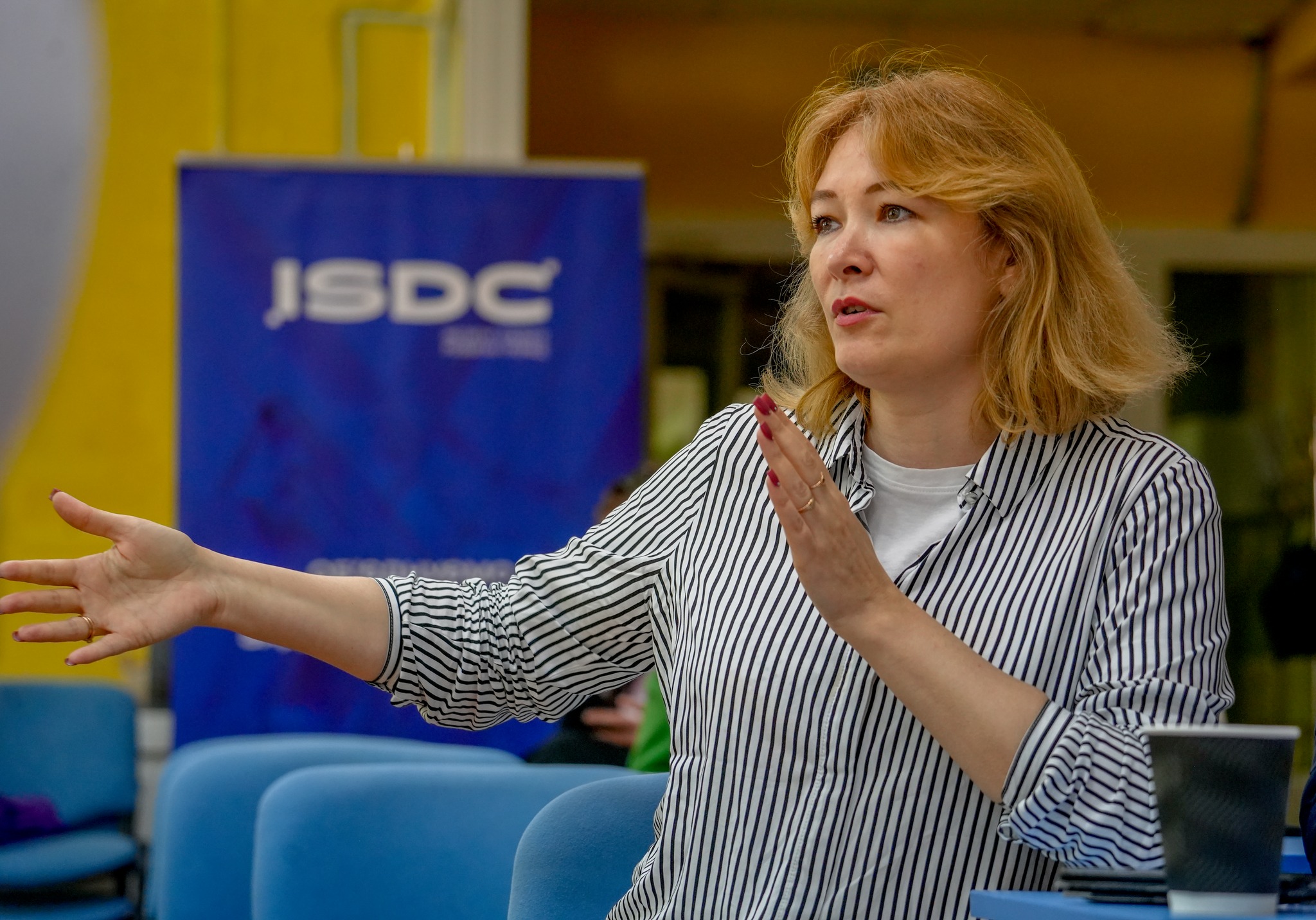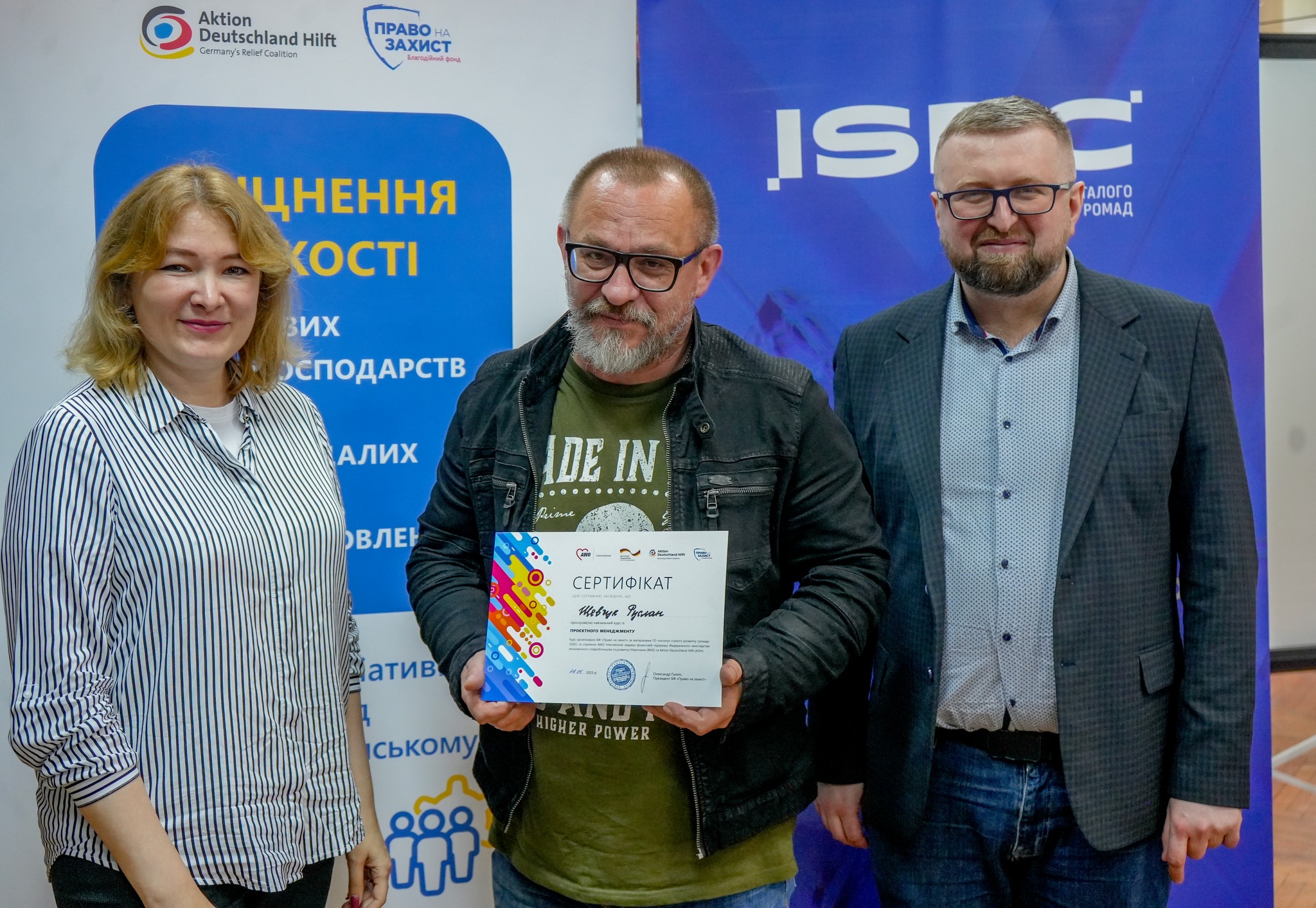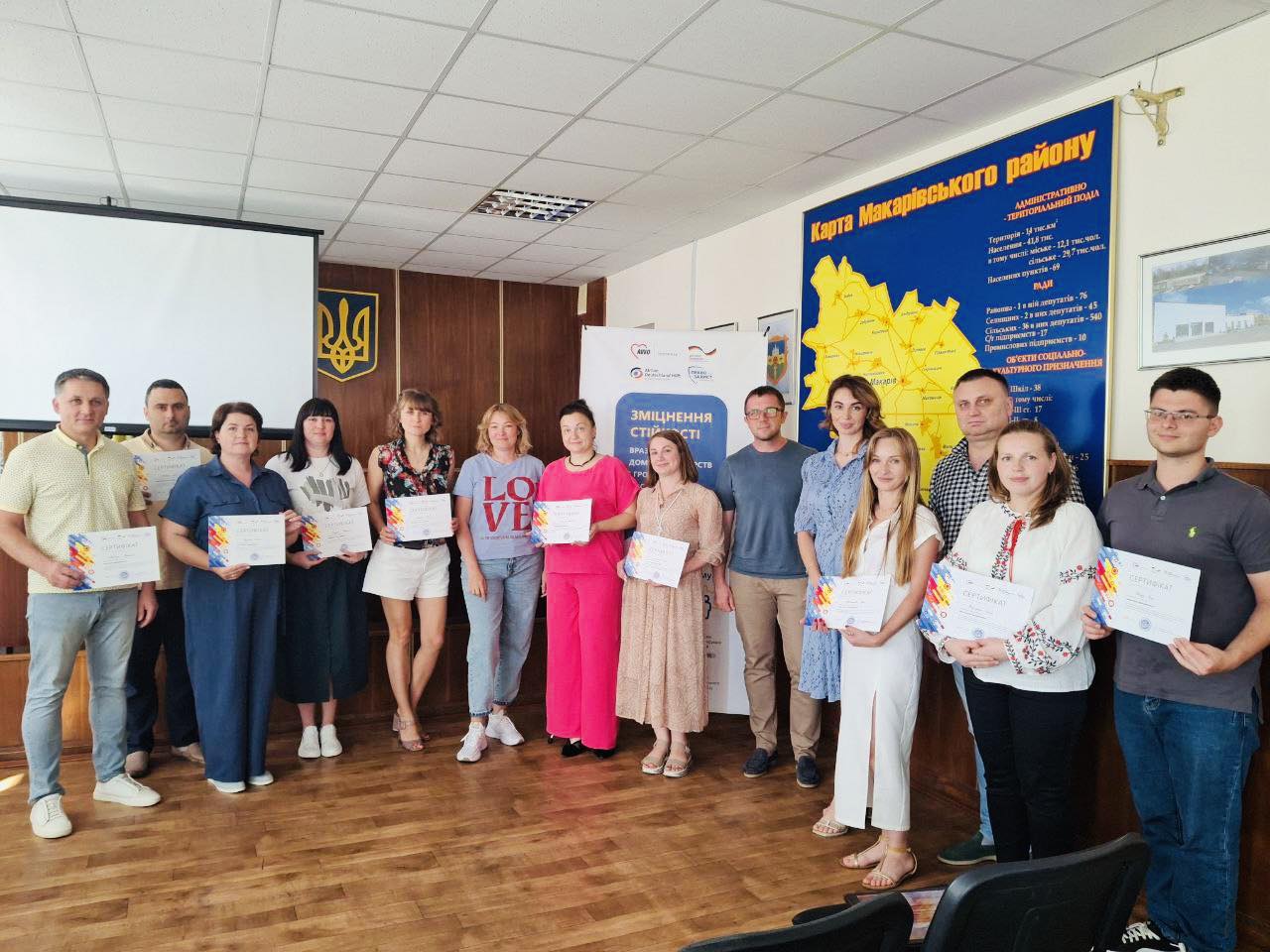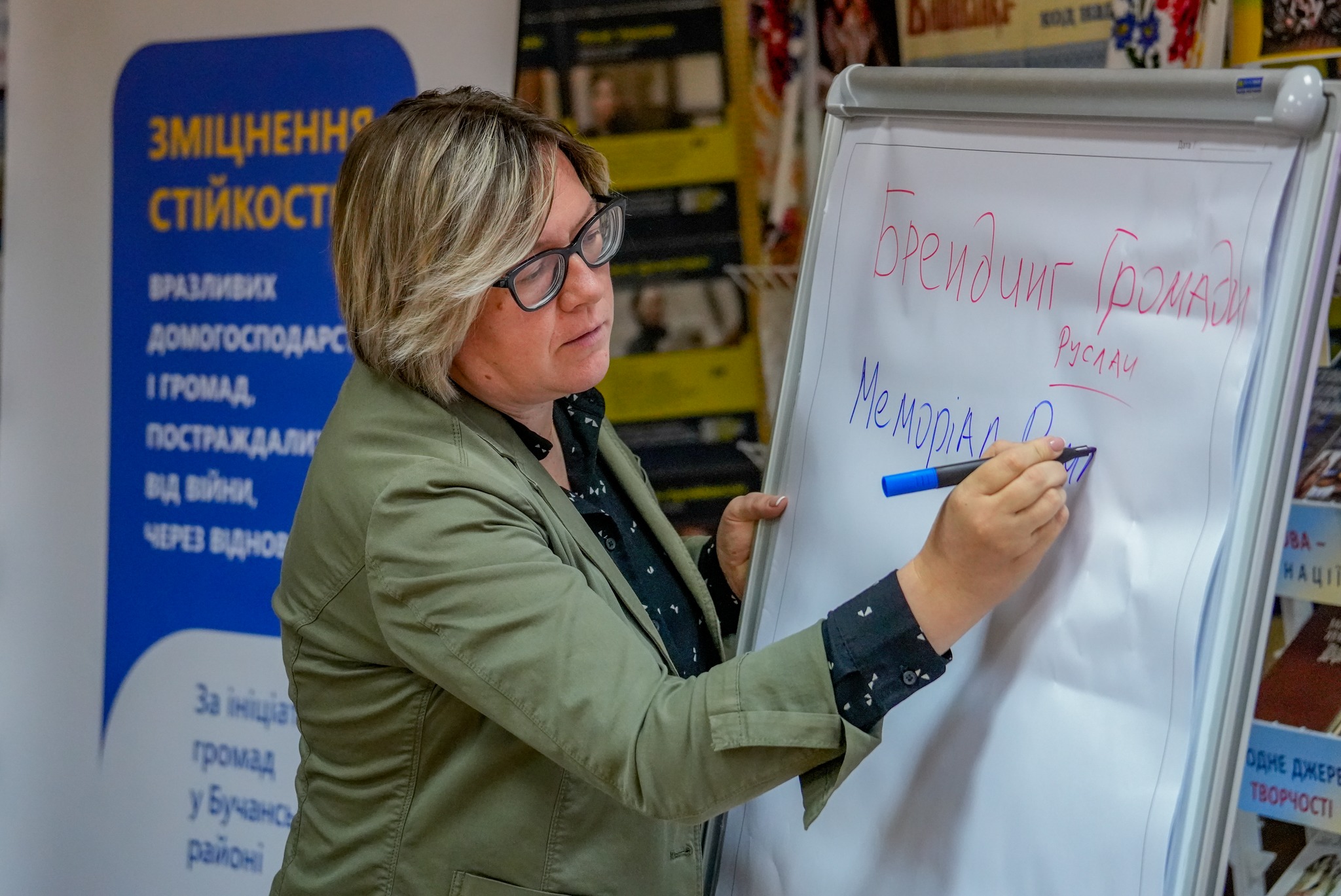-
Unfortunately, nothing was found for your request, you can search for another keyword, or contact us with your question through the feedback form
Search results (25)
All results (25)
Fundraising Strategies as a Tool for Hromada Recovery and Development
November 12, 2025
After the full-scale invasion, many Ukrainian hromadas were in a state of survival. Restoring basic infrastructure, supporting people, searching for resources, and forming a vision for the future — all these processes took place simultaneously. In such conditions, it became clear that hromadas could not move forward without a systematic approach to resource mobilisation. That is why the Right to Protection launched a component for developing fundraising strategies for local hromadas.
The Economic Inclusion of IDPs and the War-Affected Population
These activities are part of the Economic Inclusion for Internally Displaced Persons and War-Affected populations programme implemented by R2P. The programme helps hromadas rebuild their capacity to respond to challenges and plan for sustainable development independently. After all, it is the capacity of hromadas that determines whether people can find support, opportunities for growth and a sense of security in their new environment.
One of the programme’s focuses is the development of hromadas’ fundraising strategies. This enables establishing effective mechanisms to attract funding, teaching hromadas to develop local initiatives independently, and better responding to residents’ needs. The strategy helps to:
- take a systematic approach to attracting resources (financial, material, human);
- set priorities for the use of resources;
- find partners for project implementation;
- develop cooperation in various spheres of socio-economic life.
The development process is supported by experts who conduct training sessions and working meetings with representatives of local government, the public, and business. Residents, initiative groups, and representatives of vulnerable groups are actively involved in the process. This helps account for a wide range of needs and builds trust in the authorities.
Another critical element of the programme is project management training. It is aimed at improving hromadas’ capacity to develop, implement and evaluate their own projects. Participants receive practical tools for planning, finding funding, budgeting, preparing grant applications and managing teams. During the training, they work on their own ideas and receive feedback, forming concrete solutions. This approach strengthens local teams' competence and increases their ability to attract resources for the development and support of vulnerable populations.
From Diagnostics to Action
Each hromada has its own context. For example, during the assessment in Bucha, it became clear that the strategy-creation process did not currently align with the hromada’s development cycle. Abandoning this initiative was not a failure — on the contrary, it was a sign of respect for the real needs of the people. In Makariv and Irpin, on the other hand, there was a strong demand for systematic planning and the potential to implement it. However, the hromadas lacked sufficient tools and resources to transform this demand into an effective strategy independently. This is where R2P’s team came in.
Strategy as a Process, not a Piece of Paper
The development of a fundraising strategy became not a formal exercise in document creation, but a catalyst for bringing local players together. Professional teams of experts were involved in the communities: the Territorial Development Agency in Makariv and ISDC in Irpin. This ensured not only quality but also the participants’ trust in the process.
Working groups consisting of representatives of local authorities, businesses, civil society organisations, and active residents worked for six months. For the first time, those who usually act in parallel gathered around one table. For many, this was an experience not of competing for resources, but of jointly seeking solutions and agreements.
Working groups consisting of representatives of local authorities, businesses, civil society organisations, and active residents worked for six months. For the first time, those who usually act in parallel gathered around one table. For many, this was an experience not of competing for resources, but of jointly seeking solutions and agreements.
“We had to create a methodology from scratch, because Ukraine has virtually no legislative framework for such documents. It was a challenge: to develop a strategy that not only complies with current regulations, but also works for the hromada. We gave people a roadmap — how to raise funds, who to build partnerships with, how to move from idea to implementation,” explained Maryna Yudenko, an expert at the Agency for Territorial Development.
Recovery as a Starting Point for Development
In developing strategies, the community did not limit itself to identifying problems. Working groups identified strengths, analysed potential partners and donors, and formulated priority development directions.
“We have thousands of destroyed or damaged buildings, but at the same time, we want to look ahead: reconstruction cannot go on forever. Our goal is development,” emphasised Roman Liashenko, head of the Kalynivka starosta district of the Makarivska hromada.
Logical Continuation of Recovery
The fundraising strategy for the Makarivska hromada has become a practical tool for implementing the previously approved Comprehensive Recovery Programme. It allows for identifying investment priorities and mechanisms for attracting investment, as well as for monitoring results.
“This is not a separate document, but a logical continuation of the work already begun. In conjunction with the recovery programme, the strategy will serve as a roadmap for the coming years: what tools to use, how to build partnerships, and how to attract resources. This is a document that works for the long term,” said Olena Shylobryd, Deputy Programme Coordinator at R2P.
More than Money
Fundraising in this context is not just about raising money. It is about the hromada's autonomy, its ability to independently shape its vision for the future and find the resources to implement it. Thanks to the R2P-moderated process, a new culture of cooperation has emerged in the hromadas. Where previously there were separate initiatives, there is now shared responsibility and a strategic perspective.
The strategies developed have already become not just a product, but a starting point for new investments, projects, and partnerships.



